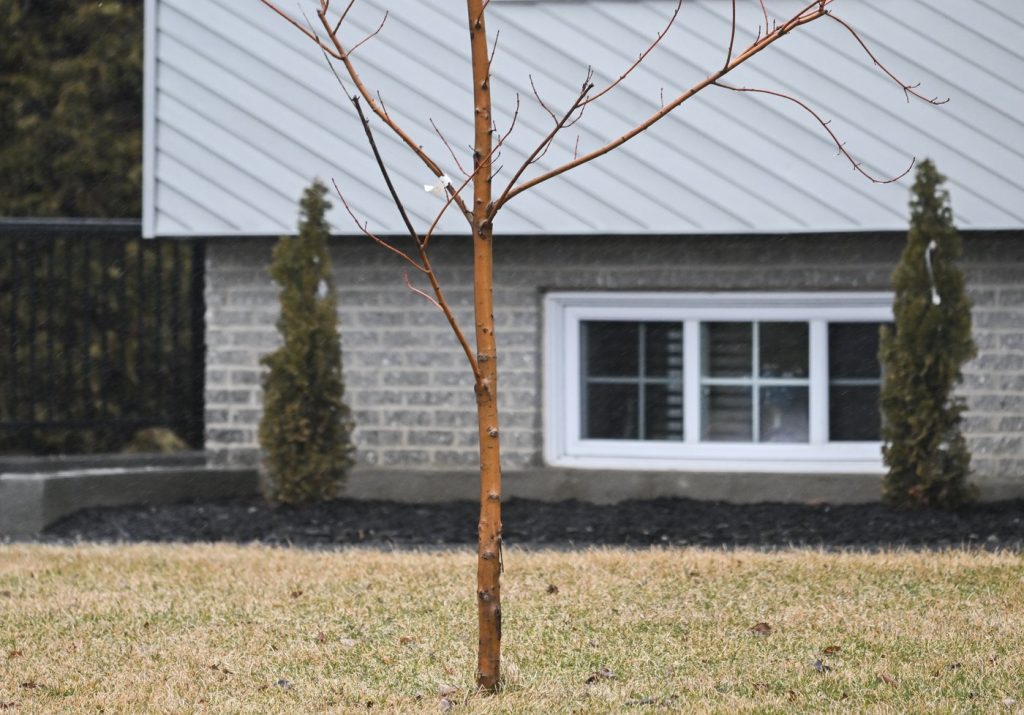MONTREAL – In the town of St-Amable, Quebec, residents are faced with an innovative yet contentious new policy aiming to boost green spaces. As of 2025, the municipality, located approximately 30 kilometers northeast of Montreal, has instituted an annual tax of $200 for homeowners who do not have a tree in their front yard. This initiative seeks to combat the urban heat islands effect and enhance biodiversity within the community.
Jean-Sébastien Ménard, the general manager of St-Amable, explains that the requirement for a tree in each front yard has existed for some time, but enforcement has become a priority after a mapping project conducted by Université Laval revealed that the town is "highly exposed" to heat waves, largely due to the prevalence of heat islands—areas in urban settings where buildings and concrete lead to elevated temperatures compared to surrounding regions.
According to Ménard, this policy is designed with public health in mind, aiming to create a cooler environment for seniors and young people alike. He highlights that rapid development in the past two decades has led to a significant loss of tree cover, exacerbating the effects of high summer temperatures and heat-related health risks.
The town hired Jakarto, a mobile mapping company, to survey lawns, discovering that out of approximately 3,000 residential properties, around 1,200 lacked trees. Following this identification, the municipality issued notices and conducted tree sales at a discount to encourage compliance. So far, about 400 households have been charged the $200 fee when tax bills were sent out.
Fanny Tremblay-Racicot, a professor specializing in municipal administration at École nationale d'administration publique in Quebec, notes that St-Amable’s tax initiative represents a facet of "ecofiscality," which employs financial incentives to promote environmentally friendly behavior among citizens. Although the town is the first known to impose a tax specifically targeting treeless yards, similar measures have been adopted by other municipalities, such as fees for parking lots and charges for trees removed by developers. Tremblay-Racicot points out that tax enforcement often involves fewer bureaucratic hurdles compared to traditional law enforcement methods.
However, the initiative has met with mixed responses from the community. Resident Sara-Kim Orobello, who owns two properties, expressed frustration after receiving a $200 charge for one home, despite having purchased and planted a tree through the municipality. Orobello claims that the required documentation for the tree wasn't processed in time, leaving her facing an unjust penalty for her efforts toward compliance. She insists that proactive residents like herself should not be penalized unjustly, arguing that the fee could equate to a week’s worth of groceries.
Former mayor Simon Lacoste has also voiced concerns about the tax, calling it "unfair and abusive." He noted that many residents were charged despite having trees, and some were misled into believing that the vegetation they planted counted, only for it to be classified as shrubs instead. Lacoste advocates for more collaborative efforts between the town and its residents instead of strict enforcement measures that feel punitive.
Ménard responded to the backlash by revealing that approximately half of those who contested the tax achieved a favorable outcome, primarily due to trees being overlooked during the scanning process. He maintains that while a minority of residents might express dissatisfaction, the majority support the municipality's environmental objectives. St-Amable aims to double its tree canopy and plant over 12,000 trees on public land in the coming years, reflecting a commitment to sustainable urban development.
This report underscores the challenges municipalities face in engaging communities in environmental initiatives while balancing compliance and public satisfaction.










